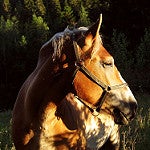WCMR members, Kirsten Müller and Josh Neufeld, in collaboration with other researchers have discovered the uniqueness of certain microbial communities among the class Mammalia.

The objective of this research was to generate a skin microbiota baseline for members of the class Mammalia, testing the effects of host species, geographic location, body region, and biological sex. The importance of this study lies in the ability to make more informed decisions in the field of veterinary research and biodiversity conservation strategies. It also serves as a source of additional information on mammalian evolutionary history.
The study revealed that there are similarities between even and odd toed ungualtes. It has also provided evidence supporting the occurrence of the co-evolution of skin communities and their mammalian hosts. This conclusion was drawn from analysis of host phylogeny and microbial community dendrograms. This provides evidence of phylosymbiosis and sets a foundation for more detailed subsequent studies of the link between mammals and their skin microbiota.